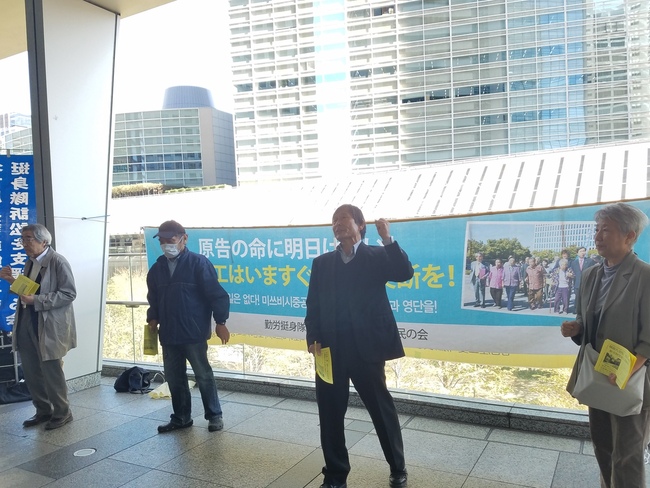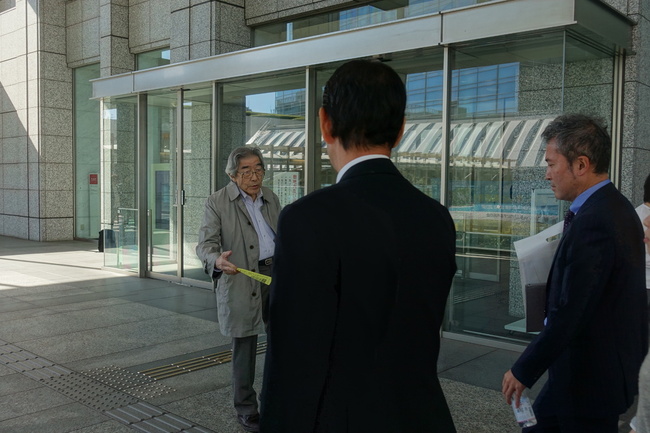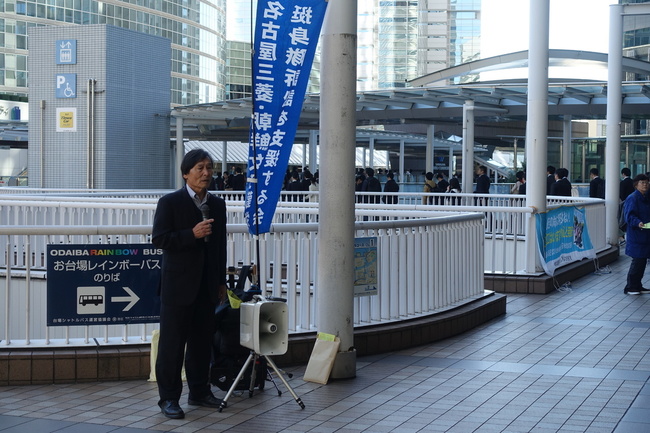 |
|
A Nagoya-based civic group supporting the lawsuit of the Korean Women’s Volunteer Labor Corps against Mitsubishi demands that the company apologize and pay reparations to the victims of forced labor in front of the Mitsubishi Heavy Industries headquarters in Tokyo on Nov. 2. (All photos by Cho Ki-weon, Tokyo correspondent)
|
Says setting historical affairs in order is the right thing to do for “the true Japan”
“How would you feel if you worked without receiving any wages? You’d be angry, right? Well, 300 Korean women who were forcibly mobilized to work for Mitsubishi Heavy Industries weren’t paid anything, but the Japanese government says that this problem was resolved by its agreement with South Korea about outstanding claims. Clearly, the victims regard this as unacceptable.” At 8:30 am on Nov. 2, Shinagawa Station in Tokyo’s Minato District was bustling with people on their way to work. Ryohei Hirayama, a member of a Nagoya civic group supporting the lawsuit of the Korean Women’s Volunteer Labor Corps against Mitsubishi, was holding a microphone and providing a detailed explanation of why Mitsubishi Heavy Industries needs to apologize and provide compensation. His speech was tailored to the mindset of ordinary Japanese. This was the 445th Friday that the Nagoya group was demonstrating at Shinagawa Station, near the location of Mitsubishi Heavy Industries headquarters. Four Japanese and one Korean-Japanese took part in the demonstration, which lasted for one hour and 15 minutes at Shinagawa Station. At 10:30 am, the demonstrators moved in front of the entrance to the Mitsubishi building and continued their demonstration for another hour and 10 minutes.
 |
|
Terao Terumi, co-representative of a Nagoya-based civic group supporting the lawsuit of the Korean Women’s Volunteer Labor Corps against Mitsubishi, hands out fliers in front of the company headquarters in Tokyo during a demonstration on Nov. 2.
|
 |
|
Ryohei Hirayama, a member of a Nagoya civic group supporting the lawsuit of the Korean Women’s Volunteer Labor Corps against Mitsubishi, explains the issue of Korean women who were forced to work for Japanese companies during WWII without compensation to passersby near Shinagawa Station in Tokyo on Nov. 2.
|







